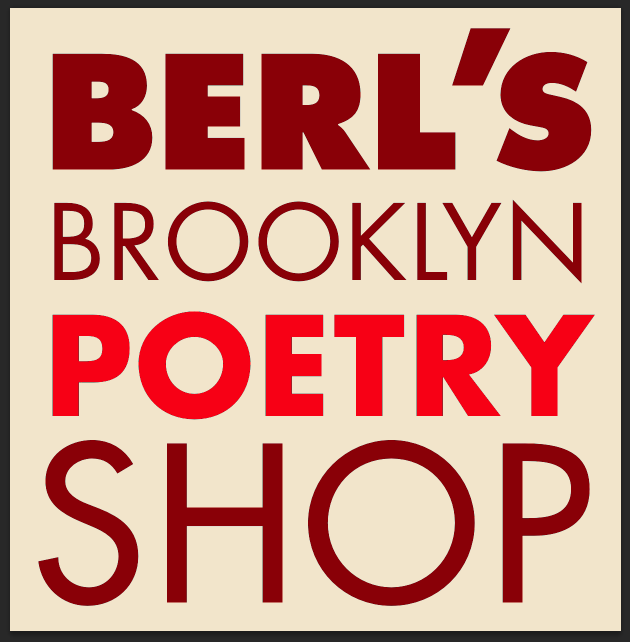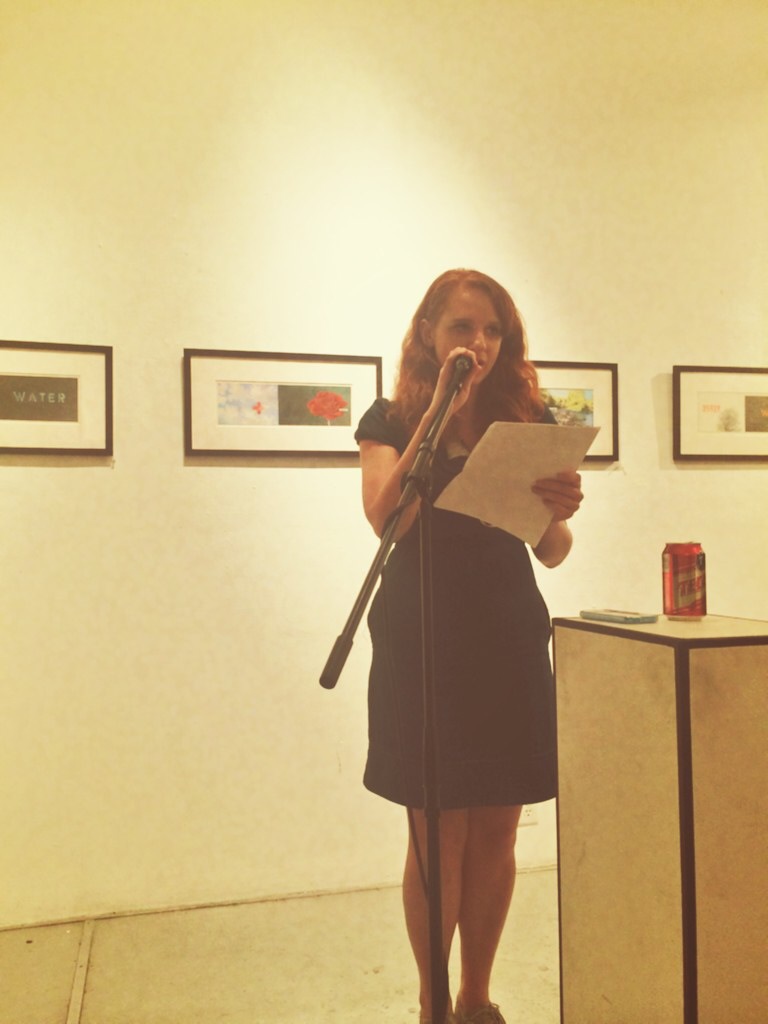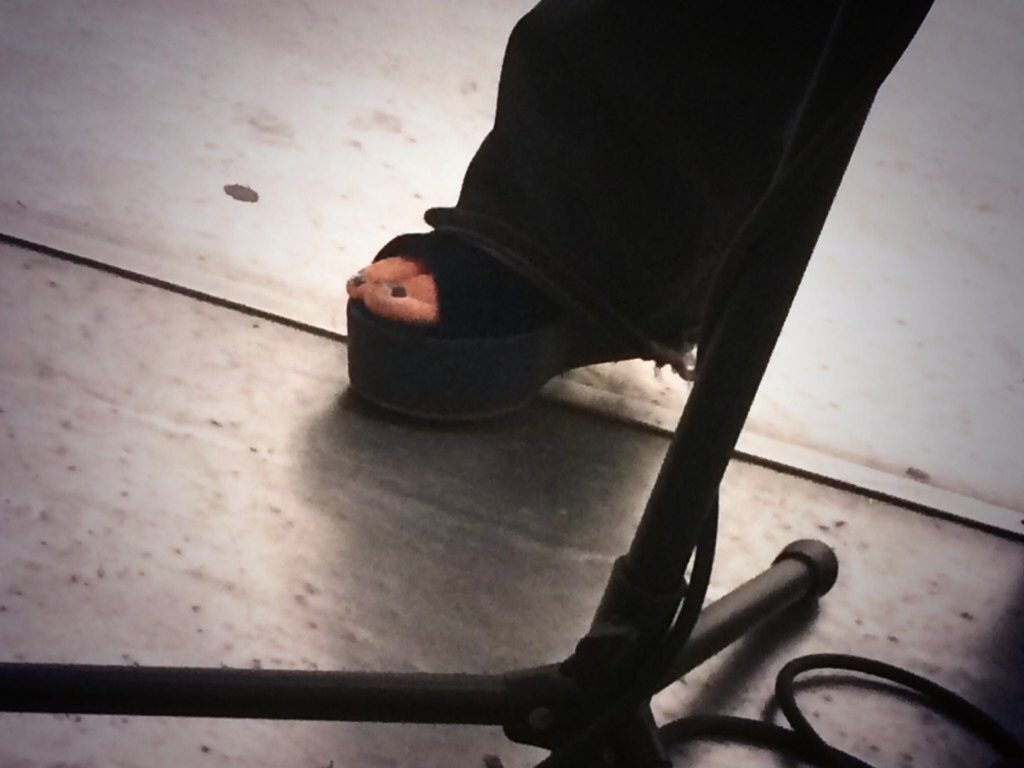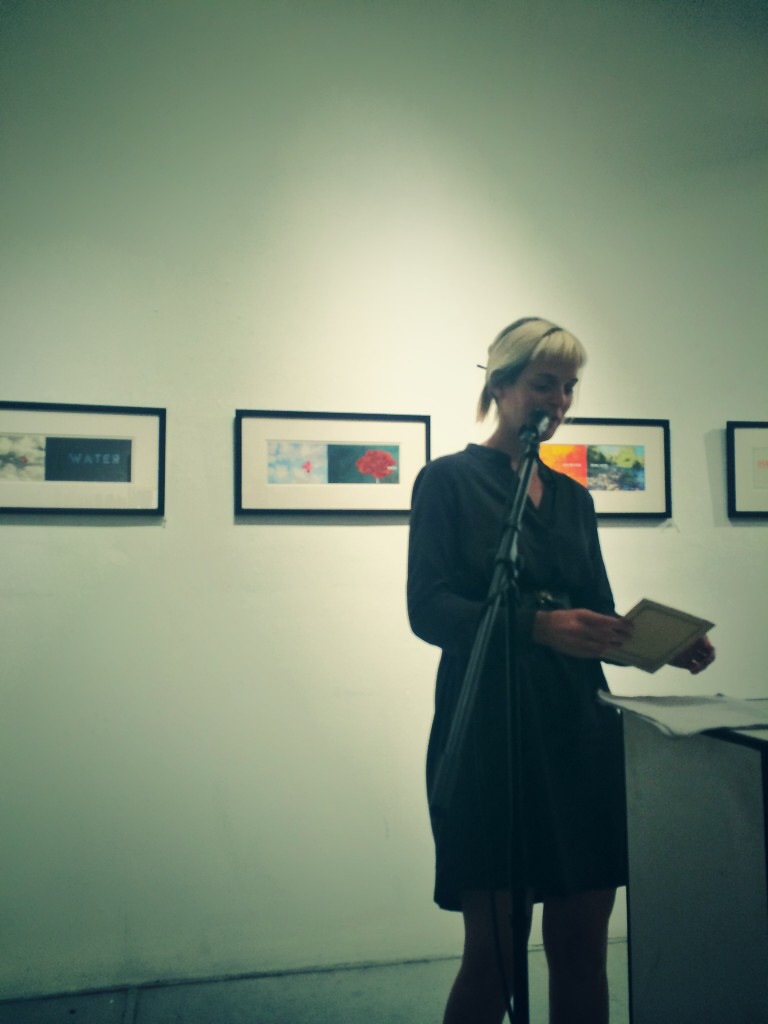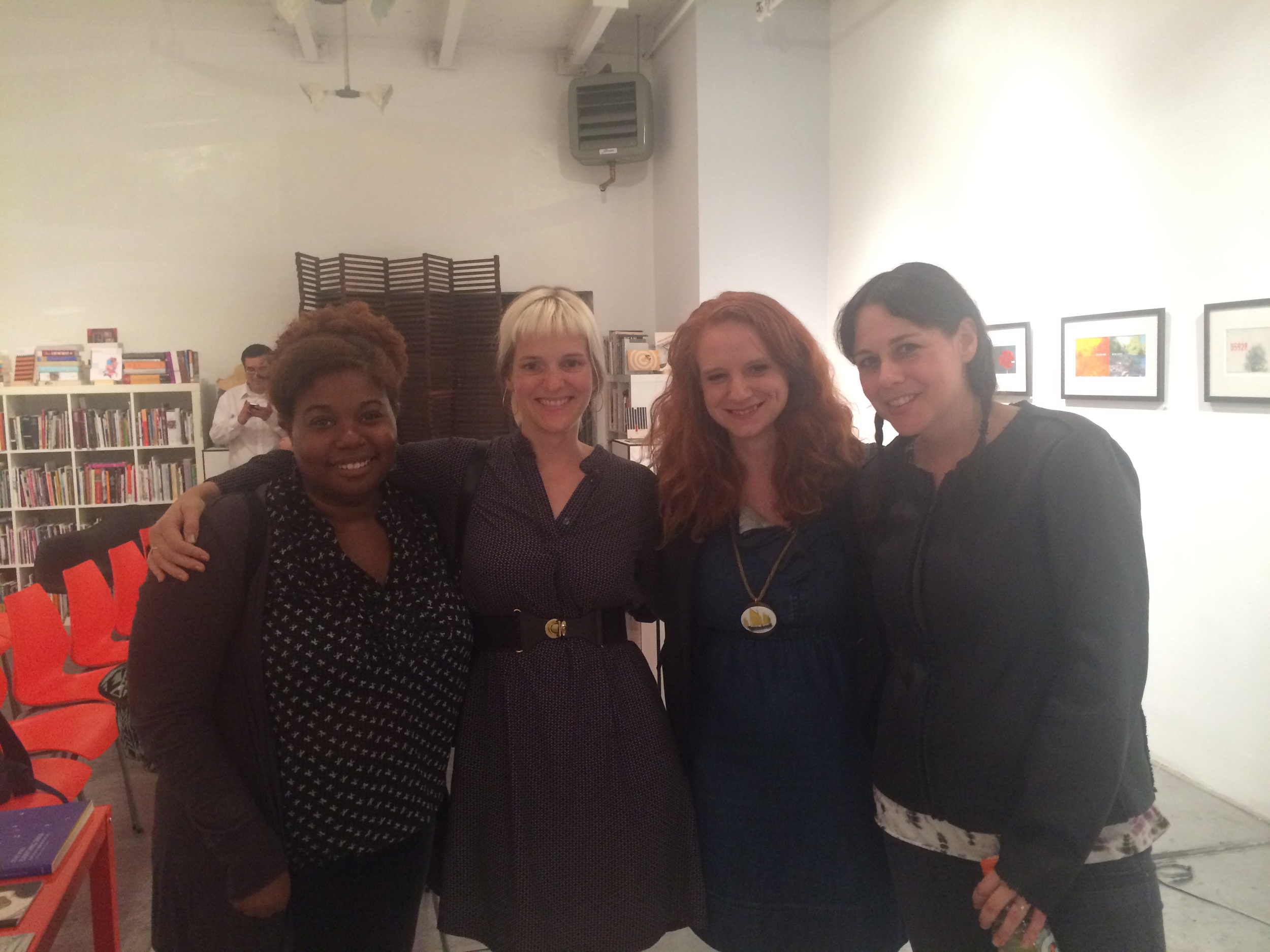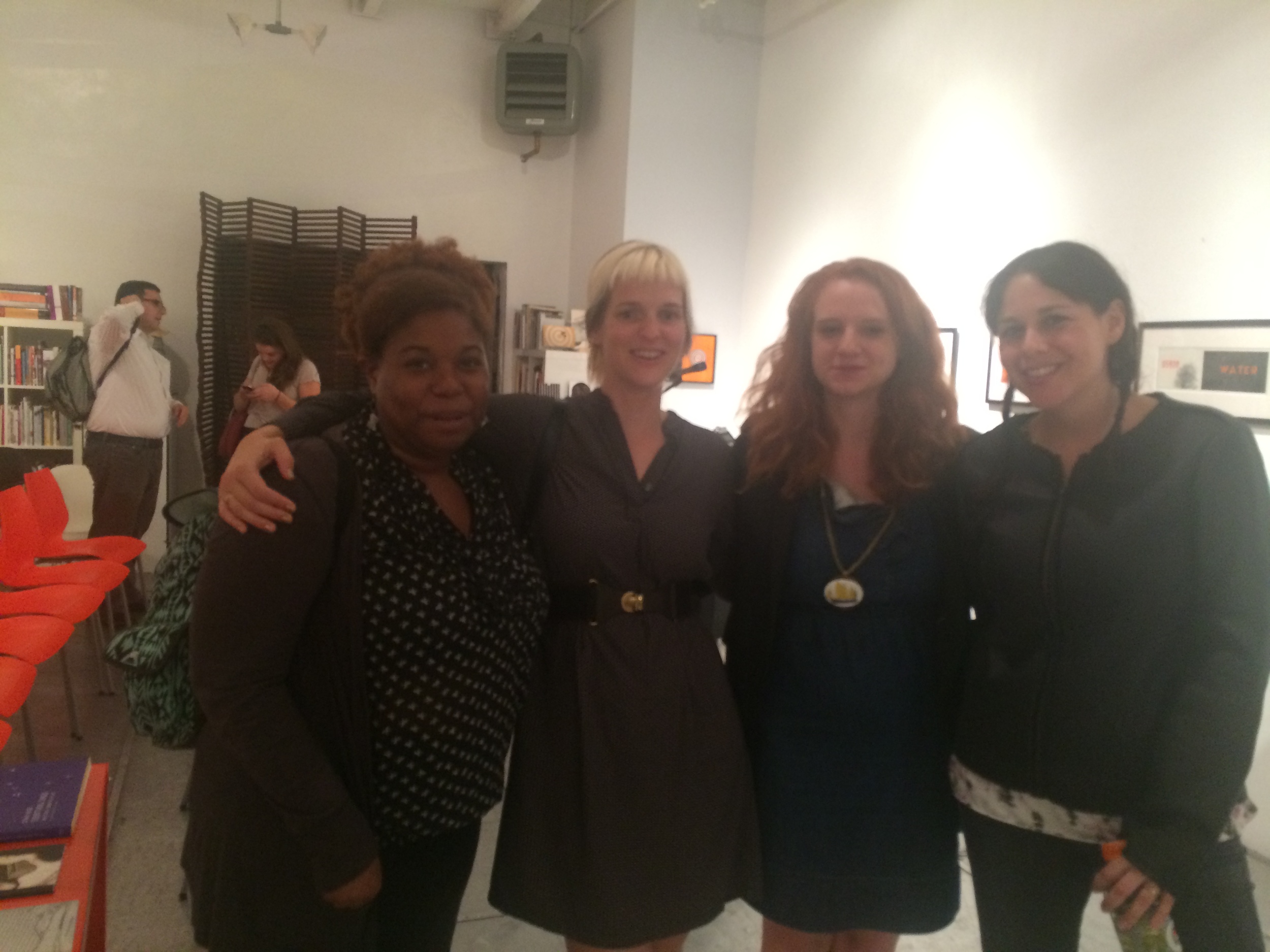Diana Arterian, J. Hope Stein and Christine Kanownik
Here is Jared’s introduction of the poets:
These three poets share a sort of charming morbidity vertigo effect at play in their writing – death-sensitive poems that laugh as much as they leer.
Christine Kanownik has the rare ability of truly funny people to make the people around them funnier. Her sense of humor is energetic but also patient, like a jeweler examining the facets of a gemstone except with jokes: she can play the straight man or the comic with equal adeptness and I often have found myself in conversation with her carrying a comical conceit well past my expectations to discover unmined funny dark corners inside the joke in a sort of ‘leave no man behind’ kind of way. It reminds me a little of that Hopkins adage about loading every rift in a poem with ore if Hopkins was more fun at parties. Her poetry has a similar kind of patient rambuctiousness - her poems tend to be long and willing to ride for a while a phrase like “life doesn’t care” or “leave work early” for a while in a way that is both mordant and fatalistic but also endearing. She writes “I can say the thing and its opposite and this will all turn out the same… my name doesn’t rhyme with anything. My life is a rhyme. My life is not a rhyme. I cannot see you from space. It is all fine and will be fine / this time.” I love the way she uses that final line break like a sort of gut punch punchline so the poem is both comforting and totally not. Christine had a chapbook We are Now Beginning to Act Wildly from Diez that sold out in about a minute and has been a great friend of our shop and we’re thrilled she’ll be reading here.
J Hope Stein is a pretty mysterious character and when I talk to the, um, poet person who is J Hope Stein about projects of hers such as her reading series slash blog slash journal slash publishing outfit Poetry Crush she talks as if these entities existed in a way before and without her, like they’re frequencies out there in the ether and she’s just this person from another world inadverte ntly tuning in and focusing on them. I want to credit her for her great ideas in this space but I feel like she may slip away as if the ideas took place in her other life… but I really do credit her a lot! The poetry crush project, for instance, is so admirable in the way that the crush is clearly her own overpowering crush on poetry and creativity but also how her energy and support and openness brings to light and celebrates other people’s crushes on each other. Also, how much more positive and sexy and fun to participate in a community of mutual crushing than like influence or advocacy or something dead like that – though of course crush also has something pretty violent. Her work – not only the pretty preposterous ee Cummings lampoon website eecattings – brings to mind Sianne Ngai’s fascinating exploration of cuteness and cuteness is partly about a performance of weakness, being crushable and how part of loving cute things is wanting to violate or destroy them. I think this is sort of at play in her work, which is often wondrous and scary. I think of a poem of hers like “The Inventor Dreams of a Woman” from her chap Mary (dancing girl) where she writes
“There is laughter in the grass, said the Inventor, there is loss in the grass and enough dead ants to fill a dump truck.” His pinky ambled in her mouth-tickled her gums & the back of her throat-scrambled an egg inside her & the woman felt a deep discussion in her psoas but still no laughter. Or “between fingers between buttons between snowflakes big as bulbs we share a monster somewhere”
I guess we’re three for three tonight with charming morbidity vertigo with Diana Arterian visiting us from the west coast, where she’s getting her phd at usc and busily editing books for Noemi, Gold Line and Ricochet. Diana is the author of the soldout UDP chap DEATH CENTOS which cobbles together the many famous last words into unsettling small poems that have the effect of someone constantly saying goodbye, and constantly standing at the door threatening to leave but not leave, until you want to say “go already!” but then immediately want to take it back. We know that the words are actual last words of famous dead personages so the poems have the effect of leveling the field so everyone’s words have the same voice, the same volume in a lurking holocaust cloud -- but then the lines themselves are often witty in a comforting, uncomfortable, sort of horrible way. It’s very potent stuff that veers always metaphysical as when a poem “Last Words of the Condemned: On Innocence” veers from “Something very wrong is taking place tonight. I am innocent, innocent, Innocent.” To “We are Innocent.” I wrote that phrase holocaust cloud and thought of Reznikoff’s HOLOCAUST book that lineates the testimony of survivors and I think there’s something similar in the way Diana cuts her lines, how the linebreak as a transformation of words into poetry has this effect of adding this ineffable aura of mystery, hauntedness, relentlessness, turning normal reality into slow-motion apocalypse. Here’s a brief quiet example from her poem “saysh”:
Before bed
I take the dog out again
then stand and watch
as she barks at the trees
in the dark yard
